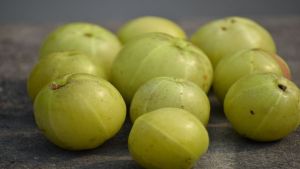
PREMATURE GREYING EXPLAINED IN DETAIL: WHAT CAUSES GREYING AND WHAT TO DO ABOUT IT
Premature greying is a common phenomenon. Dr DM Mahajan, senior consultant, dermatology, Indraprastha Apollo Hospital, says greying is impacted by a mix of genetic, environmental and lifestyle variables. Genetics is a crucial component, since those with a family history of premature greying are more likely to develop it themselves. Specific genes control the production of melanin, the pigment responsible for hair colour, and abnormalities in these genes can cause premature greying. Additionally, dietary inadequacies have a role; insufficient consumption of important minerals such as vitamin B12, iron, copper and zinc can affect melanin formation.
Environmental factors such as pollution, UV radiation, and oxidative stress all contribute to premature aging of hair follicles. Hormonal imbalances and lifestyle habits, including smoking, can also contribute to the beginning of premature greying. While heredity remains a key driver, treating dietary deficiencies, limiting exposure to environmental stressors and living a healthy lifestyle may reduce the progression of premature greying.
Use of hair dyes
The assumption that using hair colouring accelerates greying is a frequent misunderstanding. Hair dyes work primarily by depositing colour onto the hair shaft, covering existing grey or white hair rather than altering the biological process of hair colouring. Hair dye pigments are designed to attach to the hair’s outer layer, momentarily changing its colour. These chemicals do not reach the hair follicle or affect the melanocytes that produce pigment and have no influence on the natural pace at which hair becomes grey. However, it is crucial to know that repeated use of some hair dyes, particularly those containing harsh chemicals such as ammonia and peroxide, can cause hair damage, dryness and breaking. Also, the dye commonly utilised in hair colour, known as PPD (p-Phenylenediamine), is detrimental to hair health. Excessive use of such dyes may harm the overall health of the hair shaft. Using softer, ammonia and PPD free dyes and giving enough time between applications will help reduce potential damage.
Natural/diet remedies
Here are a few recommendations:
Amla (Indian gooseberry): Amla is high in vitamin C and antioxidants, which protect against oxidative stress, a common cause of premature greying. Consuming amla in many forms, such as fresh fruit, juice, or powder, can promote healthy hair.
Curry leaves: Curry leaves are high in vitamins and minerals, including B vitamins and zinc, which are necessary for hair health. Incorporating curry leaves into your diet or using a curry leaf and coconut oil paste to your hair will help with colouration and strength.
Healthy diet: Eat a well-balanced diet rich in iron, zinc, copper, and vitamin B12. Leafy greens, nuts, seeds, lean meats, and dairy products are all beneficial for maintaining appropriate nutrient levels and hair health.
Avoid smoking: It has been related to premature greying. Quitting smoking or avoiding secondhand smoke may improve the overall health of your hair.
Stress management: Chronic stress might cause premature greying. Meditation, yoga and getting enough sleep can all help you manage stress and improve your general well-being.
Common myths
One frequent belief is that plucking a single grey hair causes numerous gray hairs to sprout in its place. In truth, plucking a single hair has no effect on the surrounding follicles or the pace of greying. Another common misconception is that intense stress immediately causes greying. While persistent stress can lead to overall health difficulties, including hair conditions, there is currently no solid scientific evidence linking stress to premature greying. Greying is a complex process controlled by genetic and environmental variables, with stress acting as potential secondary contributor. Another myth is that using hair dyes accelerates the graying process. They have no affect on the biological process of hair pigmentation or melanocytes.
2024-01-20T21:43:17Z dg43tfdfdgfd